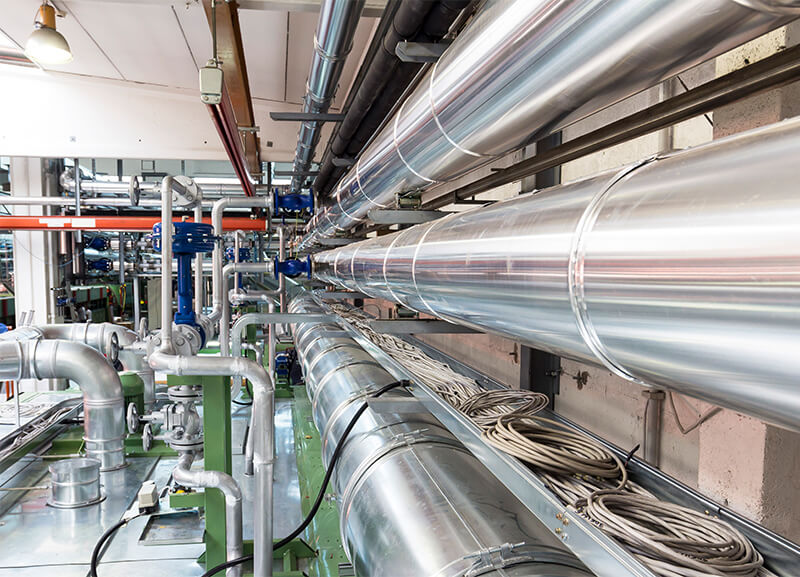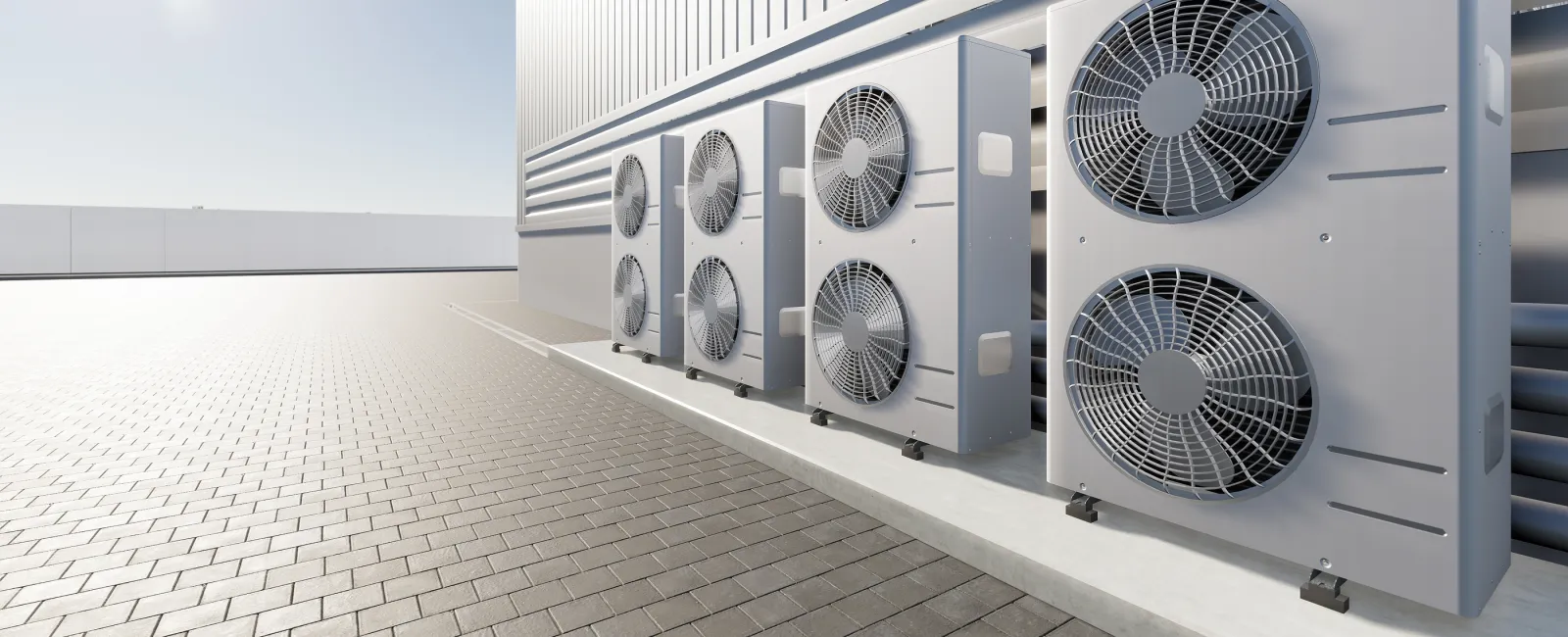Comprehending the Various Kinds of Cooling And Heating System for Optimal Performance
Comprehending the different kinds of cooling and heating systems is essential for property owners aiming to improve comfort and energy effectiveness. Central air conditioning systems offer consistent temperature level control, while ductless mini-split systems provide versatility. Heatpump deliver efficient year-round climate monitoring. For smaller spaces, window and mobile ac unit work as sensible remedies. Geothermal systems utilize regular below ground temperatures for lasting heating & cooling. Each option holds unique advantages, motivating a closer examination of which may fit individual requirements best.
Central Air Conditioning Equipments
Although several property owners seek methods to enhance interior comfort, understanding main air conditioning systems is important for effective climate control. Air conditioning operates by circulating trendy air with a system of ducts, dispersing it equally throughout the home. This sort of system consists of a number of essential elements, consisting of an outside compressor, an interior evaporator coil, and a network of ductwork.
The compressor cools cooling agent, which then takes in warmth from indoor air as it travels through the evaporator coil. This cooled air is pressed through the ducts and right into living spaces, ensuring a consistent temperature. Central air conditioning systems are recognized for their efficiency, usually using programmable thermostats to maximize energy usage. Regular maintenance, such as filter modifications and system checks, is necessary to ensure long life and performance. Comprehending these parts aids property owners make notified choices concerning setup and maintenance, ultimately improving convenience and power performance in their homes.

Ductless Mini-Split Equipments
Ductless mini-split systems offer a versatile option to typical air conditioning, providing to homeowners seeking effective climate control without the requirement for considerable ductwork. These systems include an outside compressor system and one or more indoor air-handling systems, permitting targeted air conditioning and heating in certain areas or spaces. This zoning ability enhances comfort by enabling users to change temperature levels based on private preferences, eventually causing power cost savings.
Setup is normally simpler and much less intrusive compared to ducted systems, which can be helpful for older homes or areas with restricted structural modifications. Additionally, ductless mini-split systems often feature energy-efficient technologies, such as inverter-driven compressors, which maximize power consumption based on need. Their portable style additionally permits various placement choices, making them optimal for tight or unconventional rooms. Therefore, ductless mini-split systems have gotten popularity among house owners searching for modern-day, effective a/c services.
Warm Pumps
Heatpump represent a flexible and energy-efficient option for both home heating and cooling household areas. These systems run by transferring warmth rather than creating it, making them especially efficient in moderate environments. Throughout warmer months, heatpump remove warm from inside and release it outside, supplying cooling. Alternatively, in winter, they reverse this procedure, attracting warm from the outdoors air or ground to warm the inside.
There are 2 main kinds of heatpump: air-source and ground-source (or geothermal) Air-source heatpump are a lot more typical because of their less complex installation and reduced initial expense, while ground-source versions flaunt higher effectiveness and security in efficiency. Additionally, heatpump can especially reduce energy expenses and carbon impacts when compared to standard home heating approaches, making them an environment-friendly selection. Overall, warm pumps stand as an engaging option for homeowners seeking reliable climate control throughout the year.
Window and Portable Air Conditioners

On the other hand, mobile air conditioners use adaptability, as more they can be easily moved from room to room. These systems usually call for a venting set to wear down warm air via a home window, yet they provide a convenient option for short-term cooling requirements.
Both types of air conditioning system are ideal for occupants and those seeking to prevent substantial setup processes. Individuals need to take into consideration variables such as BTU ability, power performance scores, and sound levels when selecting an unit to assure peak efficiency for their particular space and air conditioning requirements.
Geothermal Cooling And Heating Equipments
As power more efficiency ends up being progressively important, geothermal heating & cooling systems have actually obtained appeal for their sustainable approach to environment control. These systems utilize the stable temperatures located underground to give heating in winter and cooling in summertime. By taking advantage of the earth's natural thermal power, geothermal systems substantially minimize reliance on fossil fuels and reduced utility costs.

Geothermal systems normally call for much less upkeep contrasted to typical HVAC systems, resulting in long-term cost savings. With boosting recognition of environment adjustment, these systems stand for a forward-thinking option for those looking for reliable and green home heating and cooling options
Frequently Asked Questions
How Commonly Should I Service My Heating And Cooling System?
A/c systems ought to preferably be serviced two times a year, when in the springtime and as soon as in the fall. Regular upkeep helps guarantee performance, lengthens life-span, and protects against expensive break downs throughout top usage seasons.
What Size A/c System Do I Required for My Home?
Determining the proper dimension for a heating and cooling system calls for determining the home's square video, insulation quality, and environment. An expert analysis warranties maximum effectiveness, convenience, and power financial savings tailored to the details needs of more the house.
Can I Install an A/c System Myself?
Setting up a heating and cooling system individually is feasible, however it needs technological knowledge and abilities. Errors can result in inadequacy or safety and security hazards, so getting in touch with a professional is frequently recommended to ensure correct setup and conformity with laws.
What Are the Indicators My HVAC System Requirements Fixing?
Indicators that a heating and cooling system requires repair service include uncommon sounds, irregular temperature levels, boosted power costs, unpleasant odors, and frequent biking. Motivate interest to these indicators can prevent more damage and guarantee peak system efficiency.
Just How Can I Improve My heating and cooling System's Power Effectiveness?
To improve cooling and heating energy effectiveness, one ought to frequently replace filters, seal air ducts, set up a programmable thermostat, assurance proper insulation, and schedule routine maintenance checks. HVAC experts. These activities collectively boost performance while minimizing power consumption and costs
Central air conditioning systems provide consistent temperature control, while ductless mini-split systems supply versatility. Central air conditioning operates by distributing awesome air via a system of ducts, dispersing it evenly throughout the home. Central air conditioning systems are understood for their efficiency, usually using programmable thermostats to enhance power use. Ductless mini-split systems use an adaptable choice to standard central air conditioning, providing to property owners looking for reliable environment control without the requirement for considerable ductwork. Geothermal systems typically require much less maintenance compared to typical A/c systems, resulting in long-term cost savings.